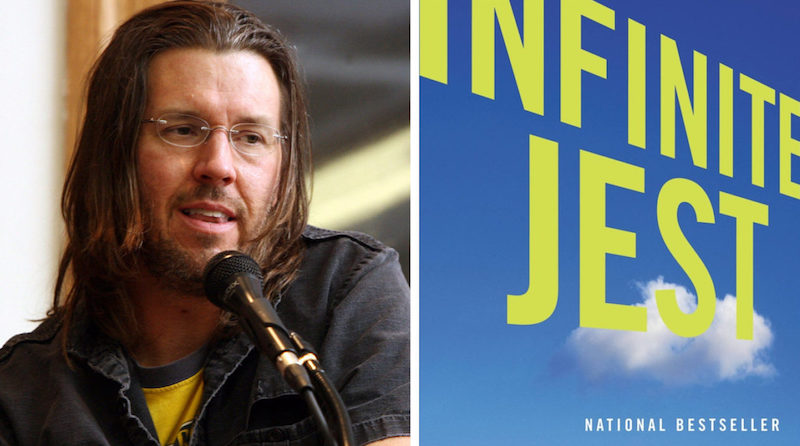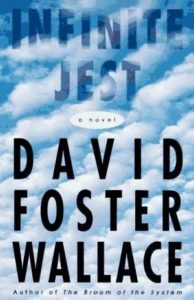

“Everybody is identical in their secret unspoken belief that way deep down they are different from everyone else.”
*
“If nothing else, the success of Infinite Jest is proof that the Great American Hype Machine can still work wonders, in terms of sales. The novel has moved some 60,000 copies and racked up a stack of glowing reviews as thick as it is. What makes the book’s success even more noteworthy is that it is, in a word, terrible. Other words I might use include bloated, boring, gratuitous, and—perhaps especially—uncontrolled. I would, in fact, go so far as to say that Infinite Jest is one of the very few novels for which the phrase ‘not worth the paper it’s written on’ has real meaning in at least an ecological sense; but to resort to such hyperbole would be to fall into the rut that characterises many reviews of this novel.
“As the preceding paragraph should make clear, I found Infinite Jest immensely unsatisfactory. I resent the five weeks of my life I gave over to it; I resent every endlessly over-elaborated gag in the book, like the ten-page riff on why video telephones are unviable, or the dozen pages on the teenager who won all his tennis games by playing with a pistol held to his head, or the thousands and thousands and thousands of words devoted to pharmaceutical trivia on all sorts of mind-altering drugs; and I resent especially the 96 pages of tinily typed and deliberately pointless endnotes and ‘errata,’ 388 in total, which make the novel a two-bookmark experience.”
–Dale Peck, The London Review of Books, July 18, 1996

